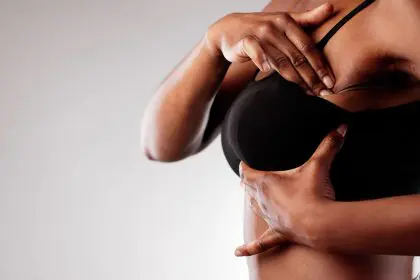breast cancer facts
 |
Dr. Dwight Randle, like so many others, made a promise. He became a part of the Circle of Promise, a campaign initiated by Susan G. Komen for the Cure, that will work to help African Americans “end breast cancer forever by fostering increased awareness, support, empowerment and action.”
Dr. Randle, a renowned breast cancer researcher, received a degree in chemistry at Jarvis Christian College, a master’s degree in chemistry from Prairie View A&M University, a doctorate from the University of Maryland in biochemistry. He also conducted extensive breast cancer research at the University of Texas. In a recent interview with rolling out, Dr. Randle expounded on the risk factors and symptoms of breast cancer. –adrienne gadling
What are some of the contributing factors to breast cancer?
There are many studies that have shown alcohol abuse [is a contributing factor], anything more than a drink a day can increase your risk of breast cancer. We don’t understand all the steps in that link but we do understand that those two things link together. Obesity is one of those tough subjects to bring up because people feel [it is] a personal attack. It is not a personal attack; it is an observation of health. When you have a body mass index over 25, it puts you at risk of [developing] many diseases, including breast cancer.
What are the survival rates for breast cancer?
Breast cancer is most treatable when it is found in its very early stages, when it is localized in the duct of the breast. When we find [it early], the [five-year] survival rate is 98 percent. But that is a statistic that mainly speaks to white women. For African American women, the five-year survival rate is 77 percent, and that is something that has to change. We have to find breast cancer when it is at its most treatable stage.
What are the symptoms
of breast cancer?
If you have an inverted nipple, thickening of the skin, a dimple, or a lump in your breast, this is something that needs to be evaluated by your doctor. Also, if you have a rash on your breast, that can be a sign of breast cancer. One of the most deadly forms of breast cancer — inflammatory breast cancer — appears as a rash. We recommend [women] do a breast self-exam monthly so they get familiar with the look and feel and what’s normal for the breast.








